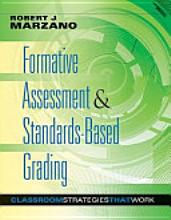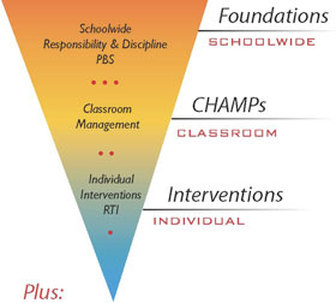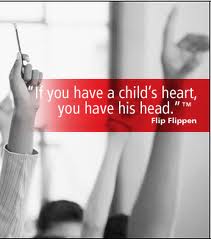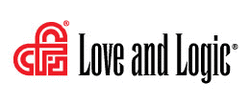Throughout my career, I have had the opportunity to attend several Professional Development training sessions. These were just a few that were the most influential to me.
Formative Assessment Training

Formative Assessment and Standards-Based Grading offers teachers everything they need to know to implement an integrated system of assessment and grading that will enhance both their own teaching and their students' learning. Much has been written about the benefits of formative assessment that is, assessment that is used while instruction is occurring rather than at the end of a course or unit but most descriptions of the practice have been general. Dr. Robert Marzano provides the specifics. He explains how to design and interpret three different types of formative assessments, how to track student progress, and how to assign meaningful grades, even if a school or district continues to use a traditional grading system. He brings each concept to life with detailed examples of teachers from different subject areas applying it in their classrooms. The second book in the Classroom Strategies That Work library, this clear, highly practical guide follows the series format, first summarizing key research and then translating it into recommendations for classroom practice. In addition to the explanations and examples of assessment and grading strategies, each chapter includes helpful exercises to reinforce the reader's understanding of the content.
CHAMPs
A Proactive and Positive Approach to Classroom Management

Safe & Civil Schools Series Overview The Safe & Civil Schools Series is a collection of practical materials designed to help school staff improve safety and civility across all school settings. By so doing, school personnel lay a foundation to engage students and enhance learning.
The goal of all materials in the series is to empower school staff with techniques to help all students behave responsibly and respectfully. The materials are full of specific "how-to" information. Though each resource stands alone, all are integrated and share some basic processes and beliefs.
The beliefs include:
Procedures can be categorized into three levels:
The goal of all materials in the series is to empower school staff with techniques to help all students behave responsibly and respectfully. The materials are full of specific "how-to" information. Though each resource stands alone, all are integrated and share some basic processes and beliefs.
The beliefs include:
- All students must be treated with dignity and respect.
- Students should be taught the skills and behaviors necessary for success.
- Motivation and responsibility should be encouraged through positive interactions and building relationships with students.
- Student misbehavior represents a teaching opportunity.
- Using data. Objective information about behavior is more reliable than labels, conclusions, or stereotypes.
- Structuring for success. All school settings should be organized to promote successful behavior from students.
- Collaboration. Helping students behave responsibly is the shared responsibility of all school staff.
- Self-reflection. If student behavior is irresponsible, school staff should reflect on what they can do to help students.
Procedures can be categorized into three levels:
- Schoolwide (affecting all students in all settings)
- Classroom (for teachers in their own classroom)
- Individual (specifically tailored to meet the needs of individual students)
Capturing Kids' Hearts

Truly remarkable outcomes are possible in a classroom where trust, respect, and caring relationships flourish. But creating such an environment is a tremendous challenge. Capturing Kids’ Hearts is a 3-day off-site learning experience that provides tools for administrators, faculty and staff to build positive, productive, trusting relationships — among themselves and with their students. These processes can transform the classroom and campus environment, paving the way for high performance.
Outcomes: Participants will learn proven, repeatable skills that help:
Who: Capturing Kids’ Hearts is meant for all faculty, staff, and campus-level administrators. CKH is the core of a powerful process that allows every member of the school family to foster and become part of a high-performing, learning community. We encourage schools to get started by sending to Capturing Kids' Hearts training several respected teachers and administrators-influential faculty and staff who encourage and inspire their peers.
When: This is a three-day learning experience. Open-enrollment sessions are available throughout the year in locations nation-wide. We can also schedule client-booked sessions with up to 50 individuals at a time.
Where: Open-enrollment sessions take place at locations we have found to be conducive to learning. Client-booked sessions can be scheduled at a convenient off-site location in retreat or day formats. We will work with you to determine an appropriate location.
Other attendance considerations: Experience shows that the optimal outcome - an intentional culture shift - relies on the complete support and involvement of school administrators. Consequently, they are strongly encouraged to attend as early in the process as possible.
Outcomes: Participants will learn proven, repeatable skills that help:
- Develop safe, trusting, self-managing classrooms
- Improve classroom attendance by building students’ motivation and helping them take responsibility for their actions and performance
- Decrease delinquent behaviors such as disruptive outbursts, violent acts, drug use and other risky behavior
- Utilize the EXCEL Model™ and reinforce the role of emotional intelligence in teaching
- Develop students’ empathy for diverse cultures and backgrounds
Who: Capturing Kids’ Hearts is meant for all faculty, staff, and campus-level administrators. CKH is the core of a powerful process that allows every member of the school family to foster and become part of a high-performing, learning community. We encourage schools to get started by sending to Capturing Kids' Hearts training several respected teachers and administrators-influential faculty and staff who encourage and inspire their peers.
When: This is a three-day learning experience. Open-enrollment sessions are available throughout the year in locations nation-wide. We can also schedule client-booked sessions with up to 50 individuals at a time.
Where: Open-enrollment sessions take place at locations we have found to be conducive to learning. Client-booked sessions can be scheduled at a convenient off-site location in retreat or day formats. We will work with you to determine an appropriate location.
Other attendance considerations: Experience shows that the optimal outcome - an intentional culture shift - relies on the complete support and involvement of school administrators. Consequently, they are strongly encouraged to attend as early in the process as possible.
Love and Logic

Love and Logic® provides simple and practical techniques to help parents
with kids of all ages:
with kids of all ages:
- Raise responsible kids
- Have more fun in their role
- Easily and immediately (first use) change their children's behavior
PLC Professional Development

Rick Repicky presented information on Fraser High School Freshman. He discussed interventions that are put in place when students drop under a "C" average. Students are reviewed one time a week, so they can be redirected if needed. They meet with counselors, teachers, and the students' parents. Parents are able to see their child's progress and and missing/low grades. Because of this huge effort from staff, 88% of the Freshman class passed all courses.
How do you get PLCs started?
Who are the essential change agents in your system? How can you identify, nurture, and encourage them?
What are the conditions for effective change? How can teachers and leaders lay the groundwork to optimize the value for every change?
How do you get PLCs started?
Who are the essential change agents in your system? How can you identify, nurture, and encourage them?
What are the conditions for effective change? How can teachers and leaders lay the groundwork to optimize the value for every change?
